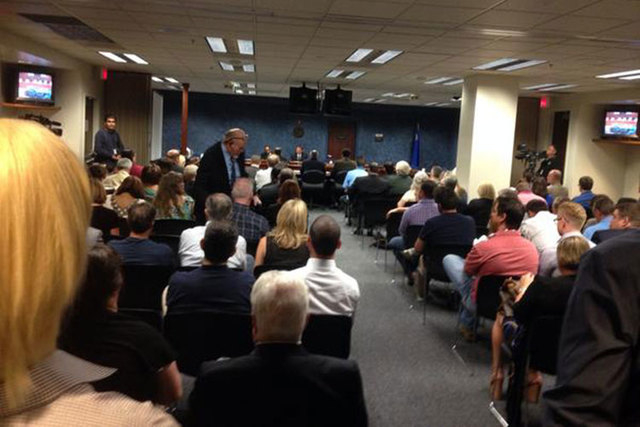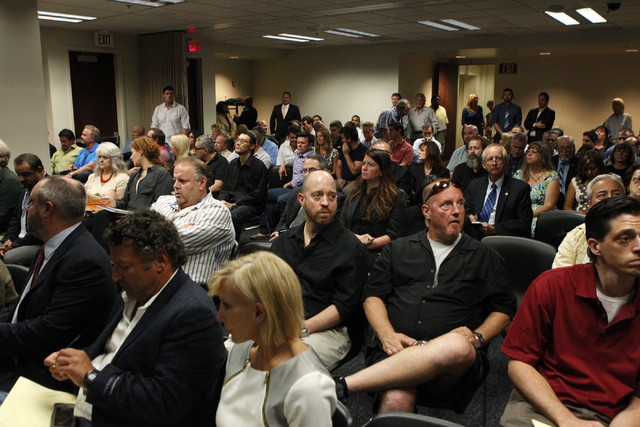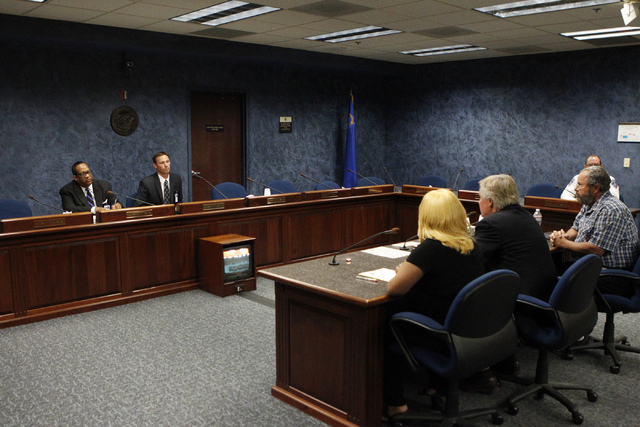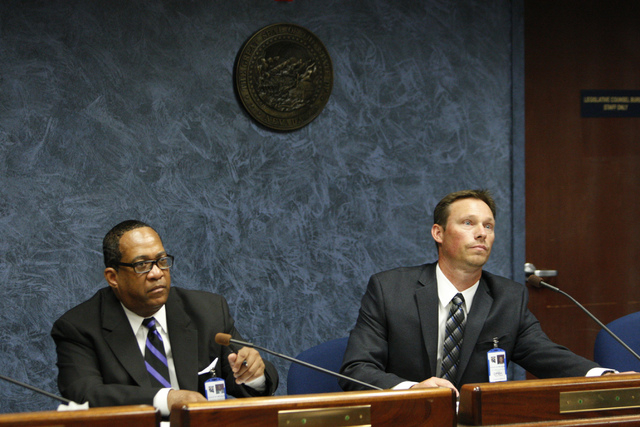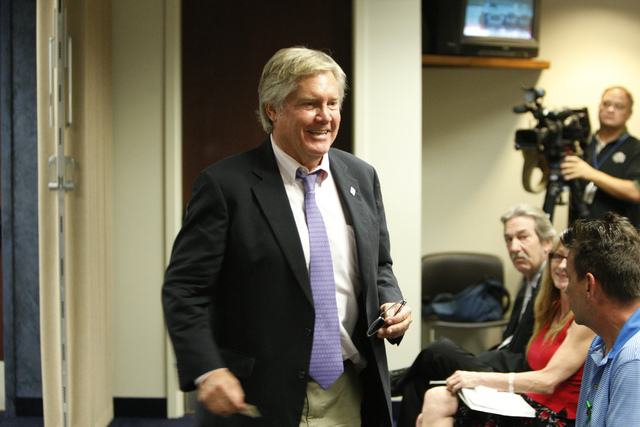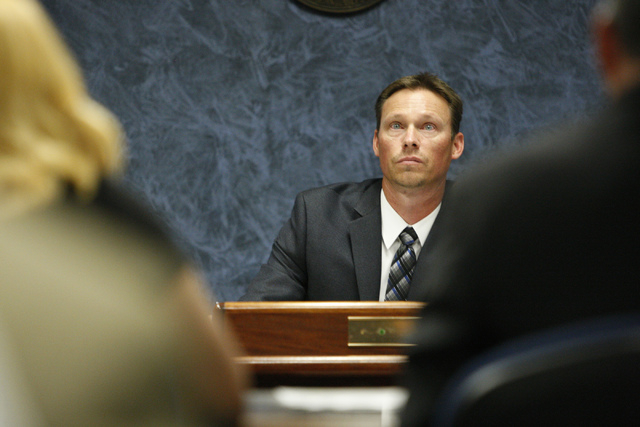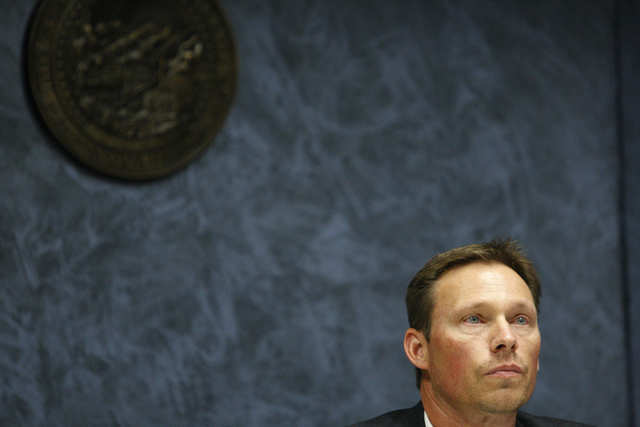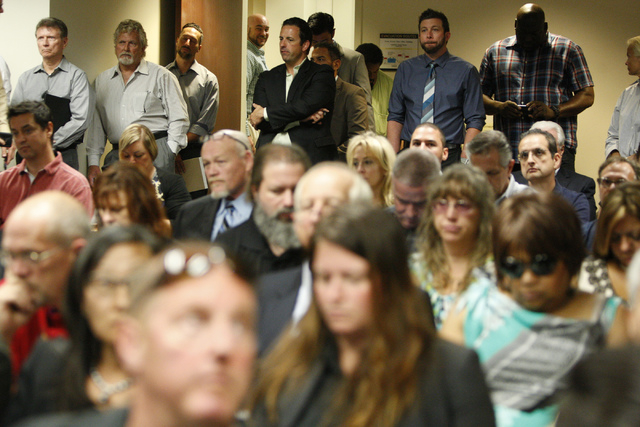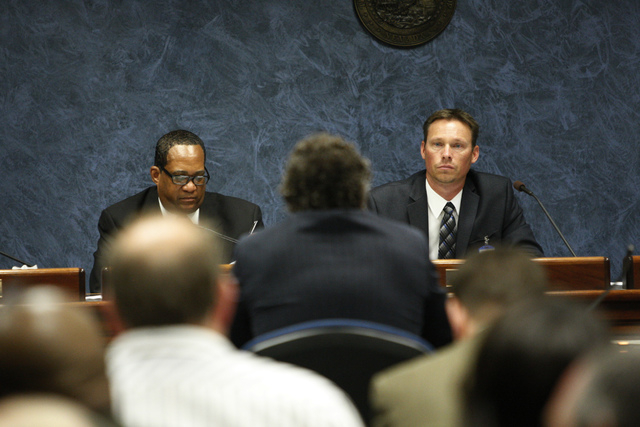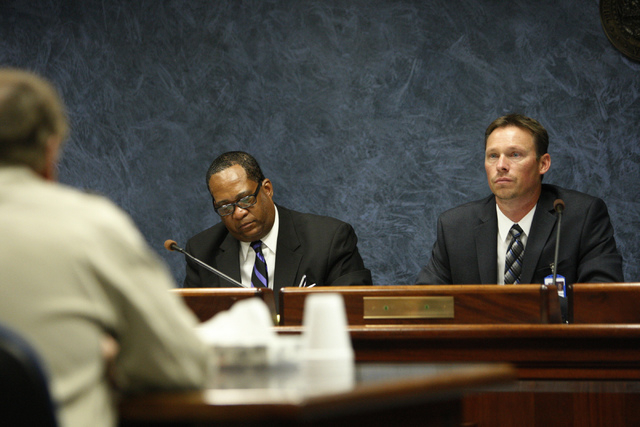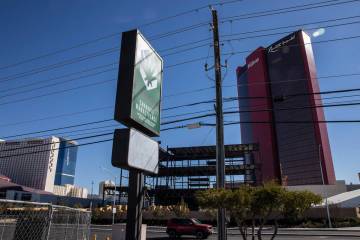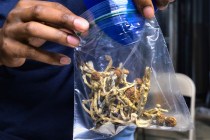Nevada won’t limit medical pot production … yet
Supporters of Nevada’s new medical marijuana industry said they scored a victory Tuesday when the state decided not to cap pot cultivation at this time.
Chad Westom, bureau chief of the state Division of Public and Behavioral Health which oversees the industry, made the announcement at the start of a statewide industry stakeholders meeting to discuss possibly limiting the amount of cultivation to 650,000 to 1 million square feet.
“There are still a number of unknown variables in determining patient need,” Westom said. He cited unknown growth from the current 6,500 marijuana card holders, how much demand will be from out-of-state visitors, and how much cannabis will be needed for production of edibles and oils.
Westom, who could not be reached for comment after the meeting, told the newspaper earlier this month the meeting was to receive feedback from outside the division and state staff would review the information before making a decision.
Apparently, feedback from the industry, advocates and politicians, including a Sept. 16 stance by Clark County commissioners opposing the grow limit, swayed the division before the meeting began.
Even though Westom announced the decision prior to the start of the meeting, nearly 45 people spoke with the vast majority supporting the state’s decision not to restrict the amount of cultivation. Speakers raised additional concerns ranging from future caps limiting the variety of strains available to price increases, lack of product from failed crops, and black market sales.
Dan Lutz, a partner in cultivation applicant M’Life Wellness, was among the business leaders, politicians and advocates who applauded the division’s decision.
“It is important to have a lot of product available, but also a lot of product in a lot of variety,” said Lutz, whose group hopes to operate in Las Vegas.
State Sen. Tick Segerblom, D-Las Vegas, said the state law was designed to promote capitalism, and the free market should decide how much pot is needed.
“We wanted to attract the best and brightest (applicants), make it a for-profit model and let them come here and compete,” said Segerblom, who wrote the 2013 bill establishing the medical marijuana dispensary program. “If they can grow better marijuana, let them grow it. We want competition so the price will come down and it’s affordable for everyone.”
Joe Brezny, executive director of the Nevada Cannabis Industry, said other states have tended to underestimate the amount of inventory needed due to unforeseen patient demand and crop failures.
While most of the speakers supported no restrictions, representatives from law enforcement expressed concern the state will not have the resources to properly regulate cultivation without a cap, leading to diversion to a secondary market because of oversupply and burdening local law enforcement to pick up the slack.
Chuck Callaway, director of intergovernmental service at the Metropolitan Police Department, said the department’s resources are already “extremely strained.”
“Complaints against a facility or allegations of wrongdoing would then fall on local law enforcement for follow-up,” Callaway said. “We believe that if a limit is placed on the number of facilities, and it is determined that those facilities are not producing enough product, it would be easier to accept new applicants and expand than it would be to cut back once no limit has been established.”
Bob Roshak, representing the Nevada Sheriffs and Chiefs Association, echoed Metro’s concern that the state will not have the resources to regulate unlimited cultivation.
A few applicants in various jurisdictions told the division that talk of a business jeopardizing their expensive license by “selling out the back door” is “ludicrous.”
“If the concern is this product getting out in the black market, then not limiting square footage is the best way to keep it out of the black market,” said Trevor Hayes, attorney for applicant Wellness Connection of Nevada. “If we limit the space and prices skyrocket in the regulated industry, people will be going to the black market to get cheaper unregulated product.”
Rebecca Gasca, chief executive officer of Reno-based industry consultant Pistil and Stigma, said the state should “rely heavily” on its own electronic verification system to regulate unlimited cultivation and prevent medical pot from entering the black market.
“We believe thorough implementation of this system will help alleviate any of the concerns of law enforcement and be able to meet the ongoing needs of patients,” she said.
The meeting was held in Carson City and teleconferenced to the Sawyer Building in Las Vegas, where a standing-room only crowd of more than 100 people packed a legislative hearing room.
Contact Arnold M. Knightly at aknightly@reviewjournal.com or 702-477-3882. Find him on Twitter: @KnightlyGrind.



